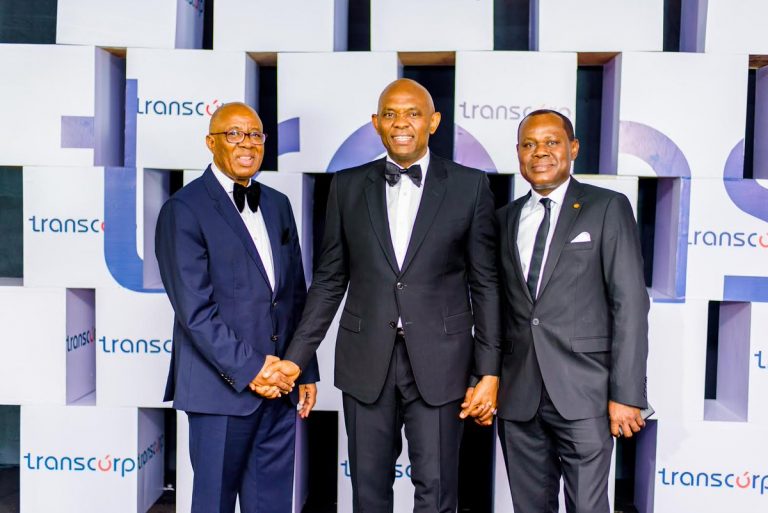The management of Transnational Corporation of Nigeria Plc (Transcorp), on Monday gave shareholders and investors hope for robust capital appreciation in the weeks and months leading to its year end, as well as a possibility of its breaking the cash dividend jinx by ensuring shareholders smile to the bank for the first time since it was incorporated on November 16, 2004, and eventually listed on the Nigerian Stock Exchange (NSE) two years after, in December 2006.
It is however yet to be seen whether it can rally its share price back to N10 at which it was listed on the bourse after a very successful Initial Public Offering (IPO) in the peak of the stock market crash during which market capitalization surpassed N12.64tr and the All Share index glided to 66,371.2 basis points on March 5, 2008.
A summary of the result showed that Transcorp Group’s revenue for the half-year rose by N9.394bn or 37.91%; cost of sales jumped by a farther 44.87% or N5.978bn; leaving a profit, as against the previous half-year’s loss before and after tax.
Specifically, revenue stood at N34.173bn from N24.779bn, with Transcorp Power accounting for the lion’s share of N27.974bn or 81.85%, compared to N17.156bn or 69.23% in 2016. It was followed from afar by the N6.199bn from Transcorp Hotels, down from the previous N7.607bn.
As a sign of the possibility that it would remain a honey pot, Transcorp Power, according to the group noted on its twitter handle last week, is today Nigeria’s highest power generator as it hit a peak of 530megwatts, or 18% of all power in Nigeria a fortnight ago. As if to drive home the point that it was not mere happenstance, the management tweeted further on the achievement: “We took over the Ughelli Power plant in 2013 and it was generating 160mw of power. Today, after investing over $300m, we are at 670mw.”
Taking over the mantle of leadership at the group early this month, new chief executive of Transcorp Plc, Adim Jibunoh, declared the group’s intention “to triple power output in a few years.”
Meanwhile, cost of sales increased from N13.321bn in the corresponding period of 2016 to N19.3bn, lifted by the rise in natural gas and fuel costs from N8.738bn to N15.189bn, following which gross profit increased to N14.873bn to N11.457bn.
Administrative and general expenses rose slightly to N5.663bn from N5.268bn, with other operating expenses standing at N1.315bn from N1.302bn; followed by N939.574m in staff costs, compared to previous N957.889m and the N927.149m in management and incentive fees, up from N695.69m. Other income rose to N305.965m, boosted by dividend income on equity securities of N238.853m from N202.152m, as against the previous N240.788m. Other gains (net) of stood at N4.66m, as against a loss of N372.02m; leaving operating profit of N9.52bn, up from N6.058bn in the corresponding half year of 2016.
Finance income dropped to N434.643m from N559.991m; finance costs (interest expense on loans) jumped to N4.701bn from N3.941bn; just as foreign exchange loss on financing activities dropped sharply to N721.707m from N13.886bn; bringing interest expense on loans to N5.423bn from N17.828bn.
Finance cost (net) also fell significantly from N17.268bn in the first half of 2016 to N4.988bn; leaving profit before tax at N4.532bn, as against the loss of N11.209bn; while income tax expenses fell from N981.105m in 2016 to N368.526m. This resulted in profit after tax of N4.163bn; as against the N12.19bn loss.
Profit for the half-year resulted in total comprehensive income for the period of N6.219bn, which translating to earnings per share of 3.87 kobo; compared to the loss of N11.498bn or 16.56 kobo in the 2016 half-year.
Trending Today
Menu








